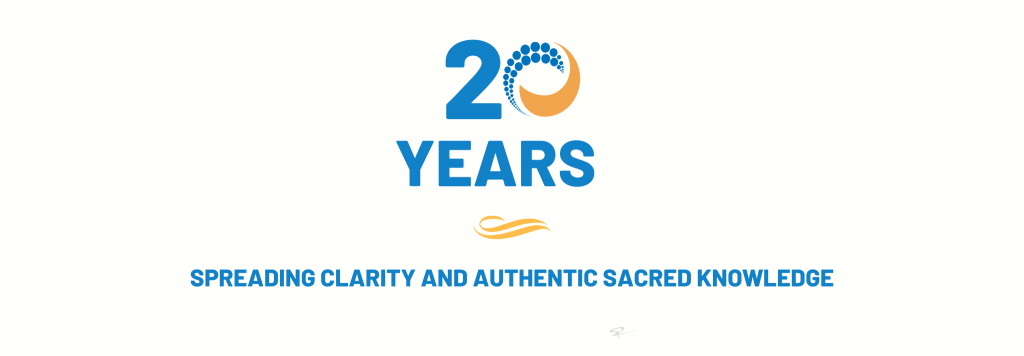ALONE in a crowd.’ Reflections on Umrah

Being Alone with Allah
During my recent umrah, a couple of verses kept playing in my mind, and one of these verses was:
And each one will come to Allah on the Day of Resurrection alone. (Maryam 19:95)
Ironically, when you do tawaf and saee, you have plenty of people around you, but on the Day of Judgement when you meet Allah Almighty, you are completely and utterly alone.
The second ayah that played in my mind was:
If they had done what they had been commanded to do, it would have been better for them. (4:66)
These verses are very linked.
Alone
When Allah Almighty says each one will come alone, the word he uses for alone is farda, which occurs twice in Surah Maryam and once in Surah Anbiya when Zakariya (peace be on him) supplicated to Allah not be left alone:
And [mention] Zakariya, when he called to his Lord, ‘My Lord, do not leave me alone [with no heir], while you are the best of inheritors.’ (21:89)
The idea of being by yourself is scary. Extremely scary. In Surah Baqarah, Allah Almighty says:
Be fearful of a day when you shall return to Allah and you will receive your reward fully for what you have done and you won’t be wronged (2:281)
Even though we often live in a crowd, some people are living in isolation. But here, Allah Almighty is drawing our attention to the fact that though we live among so many people in dunya, our reality on the most important day of our lives, is that we will be alone – farda with just our deeds. And there will be no translator between us and Allah Almighty:
There is none of you but Allah Almighty will speak to him. There is no translator between him and Allah Almighty. (Bukhari and Muslim)
In Surah Luqman, in the penultimate ayah Allah Almighty says:
O mankind, fear your Lord and fear a Day when no father will avail his son, nor will a son avail his father at all. Indeed, the promise of Allah is truth, so let not the worldly life delude you and be not deceived about Allah by the Deceiver (Shaytan). (31:33)
Generally, we feel cushioned by our family and friends, or positions of authority and leadership in our lives, but they will be nothing in the akhirah. Children, parents, wealth, nothing will protect us on that day. Why did Allah Almighty mention our parents before our children? It is a parent’s natural instinct to sacrifice even their life to protect their child.
Allah Almighty was addressing Quraysh here, as Surah Luqman is a Makkan surah i.e your disbelieving family will not benefit you. What about believers? Would parents and children benefit them? Yes, with conditions, as we know from Ayat ul Kursi, when Allah Almighty says Ila bi idhni:
Who can intercede In His presence except As he permits? (2:255)
No one intercedes and does shafa’a but with the permission of Allah Almighty. They cannot benefit you unless you have done something good and they have permission to intercede.
In this ayah from Surah Luqman, Allah Almighty confirms that His promise is true – Jannah, hisab, the Day of Judgement, nar, are all real. Do not let the dunya deceive you. And do not let shaytan fool you. The word used here for ‘deceive’ is gharra, and shaytan, the one who keeps pulling you towards temptation is called gharoor. This word al gharoor is mentioned once in Surah Luqman and a second time in Surah Fatir.
Being prepared
It is easy to be deceived. We have plenty of tests in dunya. Everyone has his own test, whether it is money, power, intellect, men/women. Don’t let temptations control you. Be careful. You will come to Allah Almighty alone and have to answer for yourself. Are you prepared?
You need to go through your account before you are accountable on the Day of Judgement. What you have done will be in your account. And then your Book will be read. And you will be alone.
Read your book; this Day you suffice to take account of yourself. (17:14)
In Surat al Kahf, Allah Almighty says:
And the record [of deeds] will be placed [open], and you will see the criminals fearful of that within it, and they will say, “Oh, woe to us! What is this book that leaves nothing small or great except that it has enumerated it?” And they will find what they did present [before them]. And your Lord does injustice to no one. (18:49)
The classical scholar Imam al Muhasibi said whoever knows the dunya, keeps his heart away from the dunya. And whoever doesn’t know the reality of dunya will be attached to it. And whoever knows the reality of the akhirah, will be so attached to the akhirah, and whoever doesn’t know the reality of the akhira will dismiss it.
Thus whoever doesn’t know the reality of the akhirah, and is unaware of the punishment or the reward, will ignore it. This is scary. How many around us and including ourselves sometimes are not concerned about the akhirah?
Our concern is the minutes and the seconds of our day. Not our tomorrow. If we knew about tomorrow – our akhirah – our pattern of conduct would change. And this is why Allah Almighty keeps reminding us in the Quran, not to forget the akhirah. Imam Al-Tahir bin ‘Ashour, the classical Tunisian scholar when commenting on the ayah ittaqu rabukum, ‘Fear your Lord’ observed that path of taqwa varies from person to person. Some need just a few steps and others need many. It depends on your effort and ikhlas (sincerity) whether you go fast or slow, or do better or worse.
Shaytan has made a promise to pull us away from the truth.
and I shall lead them astray. (4:119)
But he confesses himself in Surah Ibrahim, that he had no control over us:
I have no control over you but I tempted you, (fastajabtum) and you responded to me. (14:22)
It is in our hands to allow shaytan or stop him from dictating to us. To listen to him or to block him. Don’t say you are weak. Allah Almighty has given us the power to stop his whispers. Engage in something beneficial and do istiadha. It is very crucial to understand this. Keep the scene when you will be alone with Allah Almighty before your eyes everyday, and before you do anything, Remember that you will have to explain why you did it to Allah Almighty.
We know whether our deeds are good or bad. If we hurt somebody, or we did something bad, what will we say to Allah when we come to Him alone. Let’s prepare for that moment, which is the truth.
In the last ayah of Surah Luqman, Allah Almighty tells us He has knowledge of when the hour will be. No one has this knowledge except him. We ask Allah to show us the reality of the dunya and the akhirah. We ask him to prepare us for that day and be among those who fear that day and fear Him and have a close relationship with Him and have taqwa.
Related Posts
Being Strategic in Preparing for the Akhirah
- The truth is more powerful than lies
- Does a bride’s wali have to be Muslim?
- Is is permissible to lead a salah split over different rooms?
- Global IT outage. When systems go down…
- The concept of worship. What are ibadah and ihsan – and how do they lead to self development?

Recommended Posts

The truth is more powerful than lies
July 26, 2024

Global IT outage. When systems go down…
July 19, 2024


